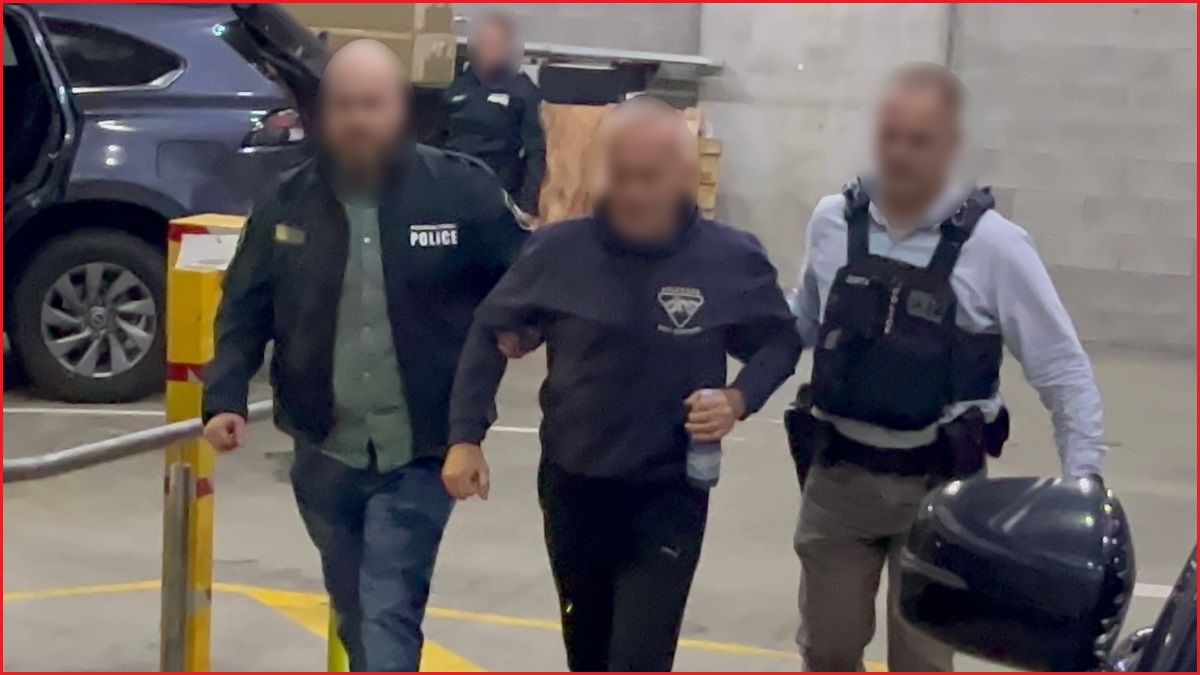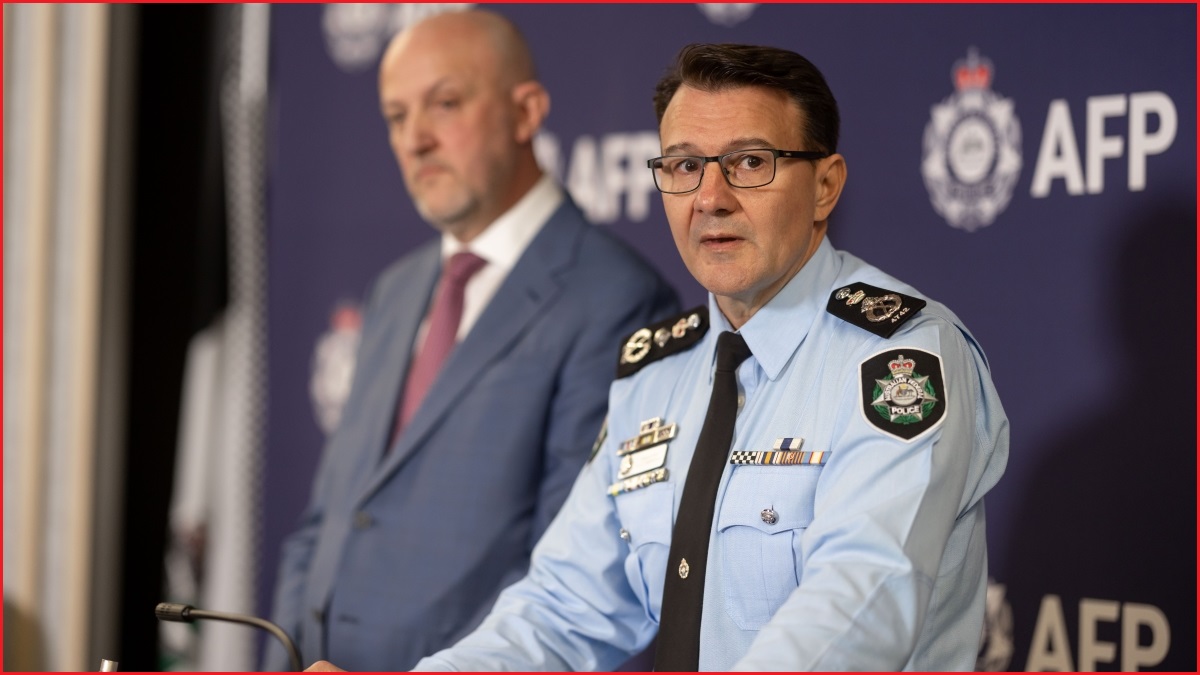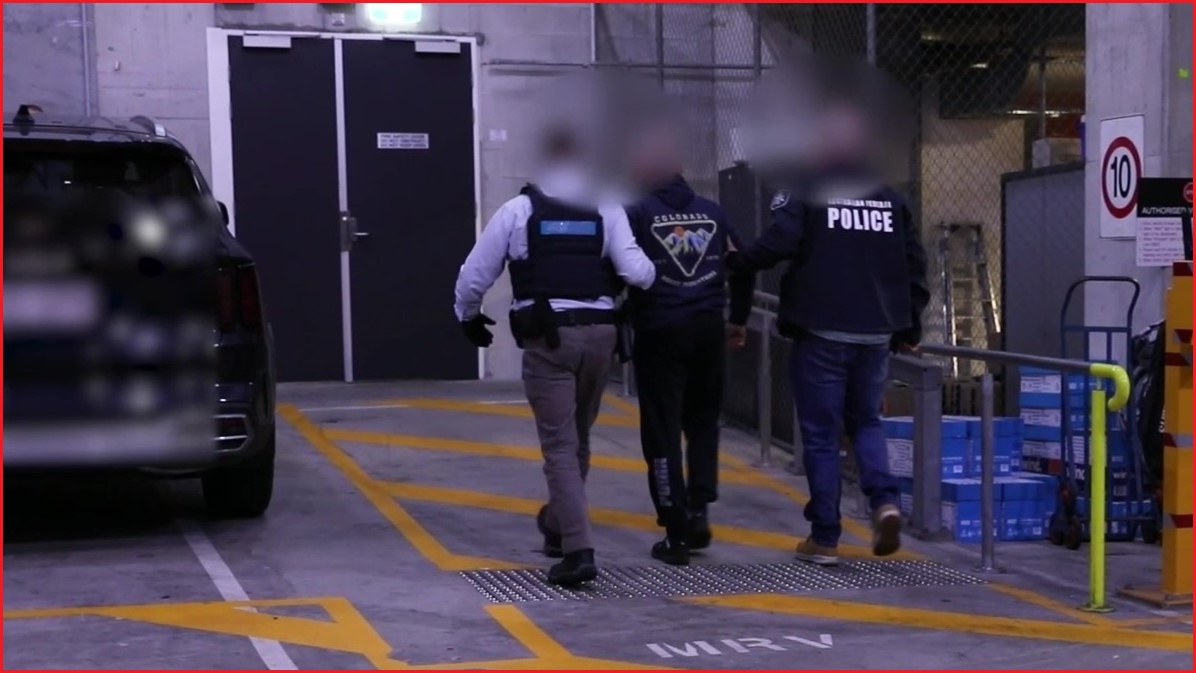An Australian army IT worker and her husband have been arrested and charged after allegedly obtaining sensitive national security information and planning to share it with Russian authorities.
The couple — 40-year-old Kira Korolev and 62-year-old Igor Korolev — were arrested at their home in the Brisbane suburb of Everton Park on Thursday, 11 July.
The pair, who are both Russian-born Australian citizens with Russian passports, have been charged with one count each of preparing for an espionage offence, which carries a maximum penalty of 15 years in prison, authorities said.
Australian Federal Police (AFP) have alleged Kira Korolev, an army private, travelled to Russia both with and without her labourer husband while on long-term leave from the Australian Defence Force (ADF) since 2023, but did not declare the trips.
AFP Commissioner Reece Kershaw told a Friday press conference that police believed the woman told her husband how to remotely access her work account and send files to her private email address.
“We allege that while she was in Russia, she instructed her husband, who remained in Australia, on how to log into her official work account from their Brisbane home,” he said.
“We allege her husband would access requested material and would send [it] to his wife in Russia.”
The AFP and Australian Security Intelligence Organisation (ASIO) said the couple accessed the wife's work account several times, but it was unclear whether any information was actually provided to Russian officials.
The couple faced Brisbane Magistrates Court on Friday, where they did not apply for bail and were remanded in custody.
They are expected to appear in court again on 20 September.
 Authorities allege the Russian-born couple were planning to share sensitive information with Russian officials. Photo: AFP / Supplied
Authorities allege the Russian-born couple were planning to share sensitive information with Russian officials. Photo: AFP / Supplied
Kershaw said the wife had worked in the ADF for several years, and was an information systems technician.
According to the ADF website, the role of an information systems technician involves managing “high-level military software and hardware that could determine the success of military operations”, with a salary of at least $80,549 per annum.
Kershaw said the couple had been in Australia for more than 10 years, with the wife obtaining her Australian citizenship in 2016 and the husband obtaining his in 2020.
ADF vetting under investigation
While investigators have not revealed when they first noticed or were tipped off about the alleged breach, ASIO Director-General Mike Burgess has described the investigation as “lengthy, patient and complex”.
He said that while the ADF’s vetting of the wife for security clearance was under investigation, he did not see vetting as a solution to prevent all security issues.
“If you meet the requirements to get a security clearance, you will get a security clearance, but that doesn't mean to say the security journey stops at this point,” he said.
“In this case, because of defence and security awareness, ASIO and the task force and the AFP were able to intervene and control this operation.”
Kershaw said investigators were looking into whether the wife joined the ADF with the intention of committing espionage, and how she travelled to Russia without the knowledge of authorities.
He also claimed there had been "some misleading on her behalf” as to which country she travelled to.

(L-R) ASIO Director-General Mike Burgess and AFP Commissioner Reece Kershaw. Photo: AFP / Supplied
Burgess said he commended the ADF for its security awareness, and argued the case reflected “an effective security culture, not a deficient one”.
“If you are conducting espionage in this country, we will detect you and we will deal with you,” he said.
“Security is a shared responsibility.
"The scale and sophistication of this threat facing Australia requires and demands individuals, governments and industries to take security seriously.”
The AFP and ASIO said there was “no ongoing threat” to the public and “no significant compromise" had been identified.
Chance of further charges
The case is the first time an espionage offence has been laid in Australia since new laws were introduced in 2018, and authorities said more charges could still be laid.
“We are using this legislation for the first time — it is acts in preparation for an espionage offence,” Kershaw said.
“We are showing that there is an intent to share that information — whether or not that has occurred, that will form further to our investigation avenues of inquiry.
“For example, the 15-year offence is upgraded to 25 years to life, depending on what we further discover.”

Authorities say the couple may face further charges. Photo: AFP / Supplied
Kershaw said state actors had “ramped-up their efforts to obtain information held by Western democracies”, but Australia’s national security community was “well-placed to identify and disrupt" their attempts.
“Espionage is not a victimless crime,” he said.
“It has the potential to impact on Australia’s sovereignty, safety and way of life.”
Burgess said multiple countries were trying to steal Australia’s secrets, which could have “catastrophic real-world consequences” if they were successful.
He also encouraged Russian spies to share their "secrets" with Australia.
“If you want to share your secrets, please reach out — ASIO is always listening,” he said.
“ASIO takes its responsibility as Australia’s spy catcher extremely seriously.
“If you are spying in this country, we are looking for you; if you are being spied on in this country, we are looking out for you.”










